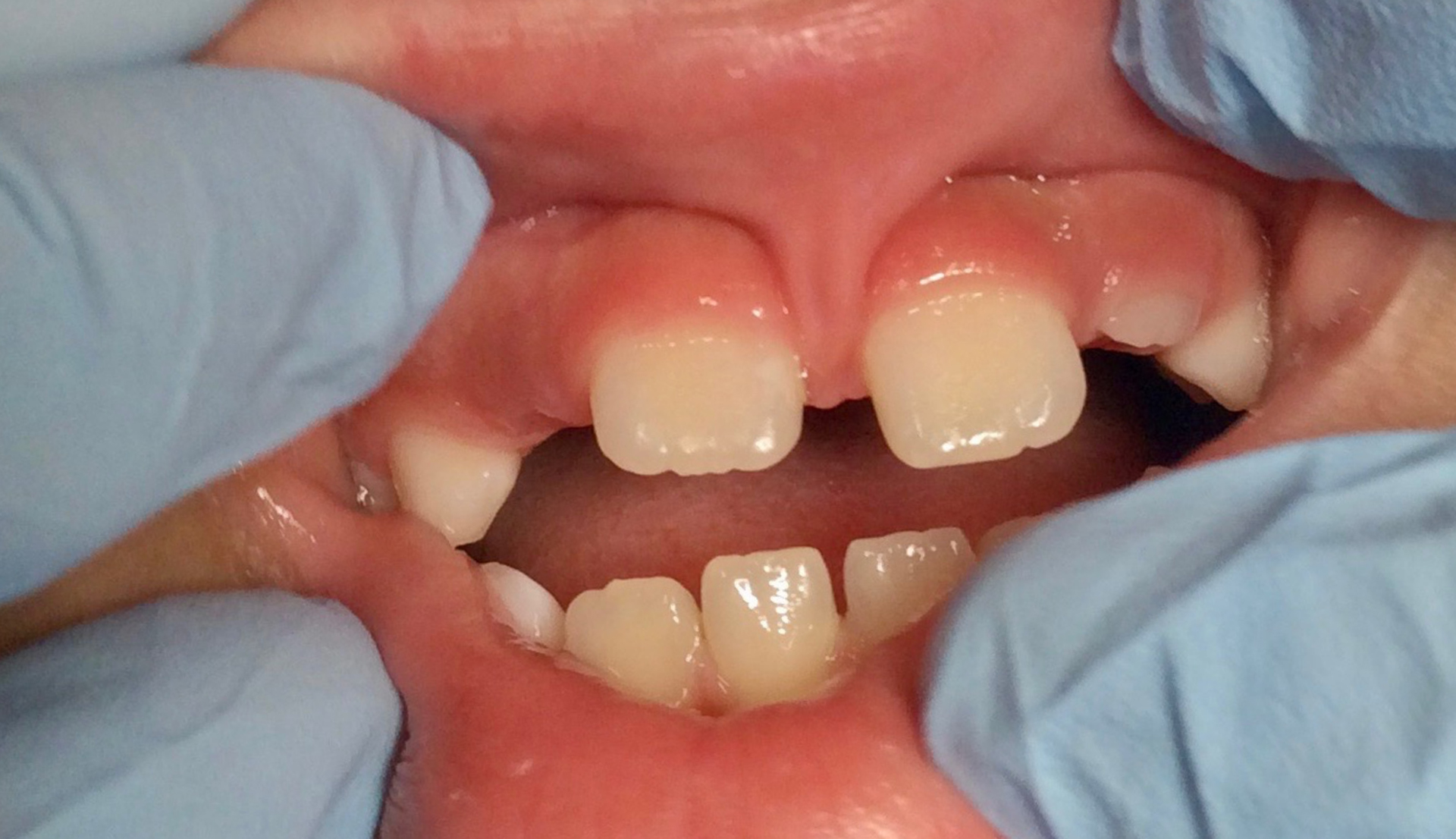Preparing for Lip-Tie Surgery: Tips for Parents
Lip tie, also known as upper lip tie, is a condition where the frenulum (the thin membrane connecting the upper lip to the gums) is too tight or thick, restricting the upper lip’s movement. This seemingly minor issue can have significant implications for infants, affecting breastfeeding, oral development, and overall comfort. Understanding lip tie is crucial for making informed decisions about your child’s lip tie surgery.
Signs and Symptoms of Lip Tie in Babies
Identifying lip ties early can make a substantial difference in addressing potential complications. Here are some common signs and symptoms to look out for in babies:
- Difficulty Breastfeeding: Babies with a lip tie may struggle to latch onto the breast properly, which can lead to prolonged feeding times, inadequate milk intake, and dissatisfaction after feeding.
- Poor Weight Gain: Due to the difficulties in breastfeeding, babies with a lip tie might not gain weight at the expected rate.
- Clicking Sounds While Feeding: A noticeable clicking sound during breastfeeding can indicate an improper latch, which often stems from a lip tie.
- Reflux and Colic: The inability to create a proper seal can cause babies to swallow excess air, leading to reflux and colic symptoms.
- Gaps Between Upper Front Teeth: A pronounced gap between the upper front teeth can be an indicator of a tight upper lip frenulum.
- Limited Lip Mobility: Observing restricted movement of the upper lip, particularly if it cannot be lifted to touch the nose, may suggest a lip tie.
- Maternal Discomfort: Mothers may experience pain, cracked nipples, or mastitis due to the baby’s ineffective sucking technique.
Recognizing these signs and symptoms early can facilitate timely intervention and improve feeding experiences and overall well-being for both mother and baby.

Pediatric Lip Tie Issue
The Decision to Pursue Lip Tie Surgery: Factors to Consider
Choosing to undergo lip tie surgery for your baby is a significant decision that requires careful consideration. Here are several factors to take into account when determining if this procedure is the right choice for your child:
- Severity of Symptoms: Assess the extent to which the lip tie is affecting your baby’s daily activities, particularly feeding. If breastfeeding challenges persist despite other interventions, surgery might be necessary.
- Professional Recommendations: Consult with pediatricians, lactation consultants, and pediatric dentists. Their expertise can provide valuable insights into whether surgery is the recommended course of action based on your child’s specific condition.
- Impact on Mother and Baby: Consider the physical and emotional toll on both you and your baby. Persistent feeding problems can cause stress, pain, and frustration for both parties, influencing the decision towards surgery.
- Non-Surgical Alternatives: Explore less invasive options first. Techniques such as feeding position adjustments, specialized exercises, or using feeding aids might provide relief without the need for surgery.
- Age of the Baby: The timing of the procedure can be crucial. Some professionals recommend early intervention, particularly within the first few weeks, when the healing process is typically faster and the baby’s discomfort might be minimal.
- Prospective Benefits vs. Risks: Weigh the potential benefits of improved feeding, weight gain, and overall comfort against the risks associated with surgery, such as infection or adverse reactions to anesthesia.
- Long-Term Considerations: Think about the potential impact on oral development, speech, and dental health. Early correction of a lip tie might prevent future complications, leading to better long-term outcomes.
Making an informed decision involves gathering comprehensive information and discussing all available options with healthcare providers. Each baby’s situation is unique, and the choice to proceed with surgery should be tailored to their specific needs and circumstances.
Preparing for Lip Tie Surgery: Tips for Parents
If you’ve decided that lip tie surgery is the best option for your child, preparation is key to ensuring a smooth and successful experience. Here are some essential tips for parents to help navigate this journey:
- Choose the Right Specialist: Seek out a qualified professional with experience in performing lip tie surgeries on infants. This might include pediatric dentists, ENT specialists, or oral surgeons. Ask for recommendations from your pediatrician or lactation consultant and read reviews or testimonials from other parents.
- Understand the Procedure: Educate yourself about the surgery process, including what to expect before, during, and after the procedure. Knowing the steps involved can alleviate anxiety and help you prepare mentally and emotionally.
- Pre-Surgery Consultation: Schedule a detailed consultation with the specialist to discuss the specific details of your child’s condition and the surgical plan. Use this opportunity to ask any questions or express concerns you might have and ensure you understand post-operative care instructions.
- Prepare for the Day of Surgery: On the day of the procedure, ensure your baby is well-rested and has had adequate feeding before any pre-surgery fasting period. Bring along comfort items such as a favorite toy or blanket to keep your baby calm.
- Plan for Post-Surgery Care: Post-operative care is crucial for a smooth recovery. Be prepared to follow the specialist’s instructions on pain management, wound care, and exercises to prevent the reattachment of the frenulum. Stock up on any necessary supplies such as infant pain relief medication or gel for wound care.
- Monitor Feeding and Comfort: After surgery, feeding might still present some challenges as your baby adjusts. Be patient and gentle during feeding times, and monitor your baby’s intake and overall comfort. Lactation consultants can provide additional support and advice during this period.
- Follow-Up Visits: Attend all scheduled follow-up appointments to monitor the healing process and ensure that the frenulum is healing correctly without reattaching. Regular check-ins with the specialist will help address any issues promptly.
Remember, the decision to undergo lip tie surgery is a significant one, and by preparing thoroughly, you can help ensure the best possible outcome for your child. Stay informed, seek support when needed, and maintain open communication with your healthcare providers throughout the process.

Lip Tie Surgery
The Surgery Day: What to Expect and How to Prepare
The day of your baby’s lip tie surgery can be a mix of emotions, but being well-prepared can make the experience smoother for both you and your child. Here’s what to expect and how to prepare for the surgery day:
- Pre-Surgery Routine: Follow any specific instructions given by your specialist regarding your baby’s pre-surgery routine. This may include fasting guidelines or medication restrictions. Ensure your baby has had adequate rest the night before to minimize stress and discomfort.
- Arrive Early: Plan to arrive at the surgical facility early to allow sufficient time for check-in and any preliminary assessments. Having extra time can reduce last-minute stress and give you an opportunity to ask the staff any additional questions.
- Comfort Items: Bring along familiar comfort items for your baby, such as a favorite blanket or toy, to help soothe them in an unfamiliar environment. These items can help provide a sense of security during the waiting period.
- Surgical Procedure Overview: The surgical team will explain the procedure one last time, detailing what will happen before, during, and after surgery. This might include how your baby will be anesthetized, the expected duration of the surgery, and immediate post-operative care.
- Parental Support: Depending on the facility’s policies, you might be allowed to stay with your baby until they are taken into the surgery room. Emotional support from a parent can be incredibly calming for your baby.
- Recovery Room: After the surgery, your baby will be taken to a recovery room where they will be monitored closely as they wake up from anesthesia. You will be invited to join them as soon as it is safe to do so. Be prepared to comfort your baby and offer gentle reassurances.
- Post-Surgery Instructions: The surgical team will give you detailed post-operative care instructions, including how to manage any pain, what to look for in terms of signs of complications, and when to seek medical attention. Ensure you understand these instructions fully before leaving the facility.
- Pain Management: Your specialist may prescribe pain relief medication or recommend over-the-counter options to alleviate discomfort. Administer these as directed and keep a close eye on your baby’s reactions to ensure they are comfortable.
By understanding what to expect and preparing in advance, you can help ensure a successful surgery day experience for your baby. Staying calm and organized will not only aid your baby’s recovery but also ease your own anxieties during this important time.
Post-Surgery Care: Tips for a Smooth Recovery
Proper post-surgery care is crucial for ensuring your baby’s swift and smooth recovery after a lip tie surgery. Here are some essential tips to guide you through the recovery process:
- Manage Pain Effectively: Follow the specialist’s recommendations for pain management, which might include prescribed medication or over-the-counter options. Administer these as directed and monitor your baby’s comfort levels closely. If your baby seems excessively fussy or appears to be in pain, contact your healthcare provider for advice.
- Keep the Surgical Site Clean: Maintaining hygiene around the surgical site is vital for preventing infection. Use any prescribed oral gels or antiseptic solutions as directed by your specialist. Avoid touching the area with unwashed hands and ensure that feeding items, such as bottles and pacifiers, are thoroughly cleaned.
- Follow Wound Care Instructions: Your specialist will provide detailed instructions on how to care for the wound. This might include specific exercises or massages to prevent the frenulum from reattaching. Ensure you understand these instructions and adhere to them diligently to promote proper healing.
- Monitor Feeding: Feeding might be slightly challenging initially as your baby adjusts. Be patient and offer extra support during feeding times. Speak with a lactation consultant if you face persistent issues, as they can provide useful techniques and guidance to help improve the feeding experience.
- Pay Attention to Signs of Complications: Stay vigilant for any signs of complications, such as excessive bleeding, persistent swelling, or signs of infection like fever or unusual irritability. If you notice any of these symptoms, seek medical attention promptly.
- Provide Emotional Comfort: Surgery can be a stressful experience for your baby. Offering plenty of cuddles, gentle rocking, and soothing words can help provide emotional comfort. Consistent parental presence and affection are key to reassuring your baby during the recovery period.
- Stay in Contact with Healthcare Providers: Keep up with all scheduled follow-up appointments to ensure your baby’s recovery is on track. These visits provide an opportunity to address any concerns, assess the healing process, and receive professional guidance for continued care.
By adhering to these post-surgery care tips, you can help your baby recover more comfortably and quickly. Remember, your attentive care and emotional support are invaluable during this time, laying the foundation for a healthy recovery and improved well-being for your child.

Lip Tie Examination and Treatment
Potential Complications and How to Address Them
While most babies recover smoothly following a lip tie surgery, being aware of potential complications and knowing how to address them can greatly enhance the recovery process. Here are some potential complications and tips on how to manage them:
- Infection: One of the primary concerns post-surgery is the risk of infection. Signs of infection include fever, increased redness or swelling around the surgical site, and unusual irritability. To manage this, ensure rigorous hygiene practices and administer any prescribed antibiotics as directed. If an infection is suspected, contact your healthcare provider immediately.
- Bleeding: Some bleeding is normal immediately after surgery, but if there is excessive or prolonged bleeding, it requires prompt attention. Apply gentle pressure with a clean, sterile gauze pad and seek medical advice if bleeding persists.
- Reattachment of the Frenulum: There is a possibility that the frenulum may reattach if post-surgery exercises or massages are not followed correctly. Your specialist will provide specific exercises to prevent this, such as gently stretching the area several times a day. Adhere to these recommendations to ensure proper healing.
- Pain and Discomfort: Although pain is expected, managing it effectively is crucial for your baby’s comfort. If your baby appears to be in significant pain despite following the prescribed pain management plan, consult your healthcare provider. They may adjust the medication or provide additional measures to alleviate discomfort.
- Feeding Difficulties: Some babies may experience challenges with feeding post-surgery. If your baby is not feeding well, consult with a lactation consultant who can offer techniques and support to improve the feeding experience. Persistent problems should be discussed with your specialist.
- Delayed Healing: In some cases, the healing process may be slower than anticipated. If the surgical site does not appear to be healing properly, or if there are persistent signs of discomfort, follow up with your healthcare provider to assess the situation and receive appropriate interventions.
By being vigilant and proactive in addressing these potential complications, you can help ensure a smooth recovery for your baby. Regular communication with your healthcare team and following their advice will contribute significantly to the successful healing process.
Conclusion
The decision to undergo a lip tie surgery for your baby is a big one, but with the right information and support, it can be a positive experience. By understanding the procedure itself, preparing adequately, and providing proper post-surgery care, you can help your baby recover comfortably and efficiently.
Remember to communicate openly with your healthcare provider throughout the process and seek guidance whenever needed. With patience, love, and diligence, your baby will soon be on their way to improved feeding, speech, and overall well-being after a successful lip tie surgery. So, it is important to always consult with healthcare providers for advice and guidance throughout the process.
Evergreen Pediatric Dentistry
https://www.google.com/maps?cid=14720788683151219551
12910 Totem Lake Blvd NE #103, Kirkland, WA 98034, United States
(425) 814-3196
https://evergreenkidsdentist.com/


